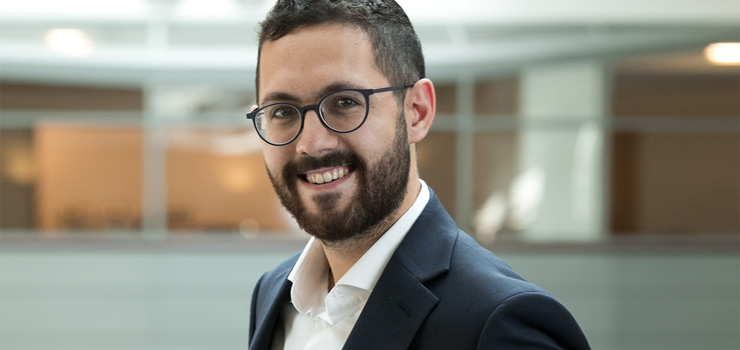By now, Enci Wang (MFRM ’20) is used to tackling big issues.

Enci Wang (MFRM ’20)
As a sustainable finance and climate risk analyst with the Global Risk Institute (GRI), her days are devoted to investigating climate change’s growing impact on financial markets. She’s part of the team that looks at how a transition to lower carbon economies might make certain markets obsolete and how firms that choose not to address climate change may face material financial and reputational risks.
It’s complex work with significant impact, and she is up to the challenge, thanks in part to the knowledge and skills she acquired through the Master of Financial Risk Management program at Rotman.
The Rotman program is known for equipping students with the skills and training they need to succeed in any area of financial risk management. Through classes and project work, they explore operational risk, credit risk and emerging financial innovations, among other topics. Midway through the program, students are tasked with completing a hands-on financial risk management project, working closely with a financial institution on a real-world issue.
It’s no surprise that MFRM graduates have landed impressive roles working in asset management, banking and risk management consulting.
“The MFRM program gave me a systematic approach for understanding and integrating risk management at an enterprise level.”
—Enci Wang, MFRM ’20
How pursuing her passion paid off for this MFRM grad
In Wang’s case, the program gave her much-needed perspective on where to take her career. Though she had volunteered her time to championing environmental, social and governance (ESG) projects for years, she assumed that potential employers would be more interested in her technical abilities.
However, her professors encouraged her to pursue her interests, often sharing papers about ESG and finance with her, and pushing her to explore these topics in project work. As well, throughout the program, topics like climate change and sustainability kept coming up in class discussions.
“For one of my first assignments in the program, I delivered a class presentation on ESG initiatives and their impact on asset management. When the presentation was over, I didn’t want to stop,” she explains. “The classes at Rotman were really forward-thinking, and they helped me understand how ESG was making a real impact in business and how someone with my skillset could contribute.”
Eventually, a Rotman contact connected her with a leader at the Global Risk Institute, a think tank focused on developing evidence-based insights that serve financial services organizations in managing risk.
When she applied for a role with GRI, she found that the recent months spent exploring financial risk and ESG topics had served her well. It proved to be the perfect preparation for the interview, case study and presentation phases of the recruitment process.
“The MFRM program gave me a systematic approach for understanding and integrating risk management at an enterprise level,” she explains. “I have a much more comprehensive understanding of how to draw connections between climate change and its impact on different risk categories.”
From engineer to financial risk consultant
Fouad Lahoud (MFRM ’20) pursued the MFRM program at Rotman in hopes of pivoting away from civil engineering and towards a career in finance.

Fouad Lahoud (MFRM ’20)
“I was looking for a career where I could combine the technical thinking I developed as an engineer with my interest in people-oriented work,” he explains. “The MFRM was the perfect program to help with the transition.”
The transition was almost too easy according to Lahoud, who earned the title of valedictorian for the MFRM class of 2020. His progression from student to full-time risk management professional came about naturally. While completing his financial risk management project at EY, he clicked with his team and with the general culture of the organization. Shortly after wrapping up the project, he applied for an opening at the organization, successfully completed the recruitment process just days before businesses moved online in the wake of the global pandemic.
Today, Lahoud, who is now a senior consultant in financial services risk management at EY, splits his time between using machine learning algorithms and building traditional risk frameworks for mitigating the risk-related challenges that financial institutions might be facing now. He credits the program’s blended focus on emerging technologies and foundational risk theory in preparing him for his current responsibilities.
“Looking back, I’m grateful the program pushed us to learn and use platforms like Python at top-speed,” he explains. “I can’t stress enough how useful these skills are in the job market.”
“Pairing the technical expertise with a strong foundation in financial risk and regulation knowledge is a winning combination.”
Written by Rebecca Cheung | More Student Stories »